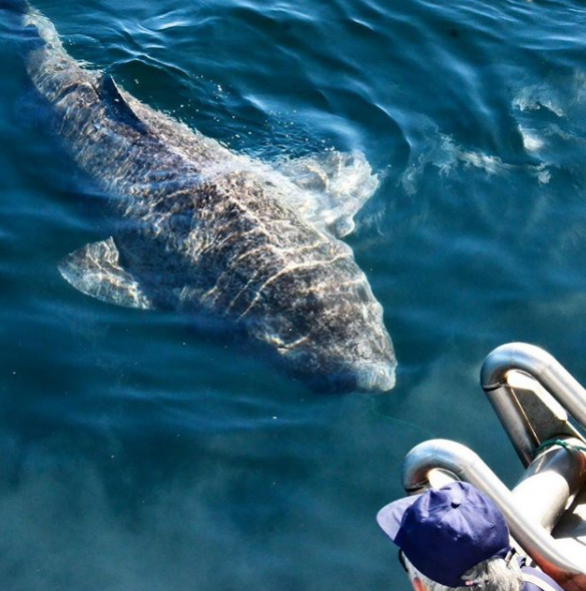
The recent discovery of a 512-year-old Greenland shark has awed people all around the world, who have designated it as the oldest living vertebrate in the world. However, researchers are now saying that the legendary shark might not be as old as previously estimated.
However, the estimate is not a massive mistake as the shark is, indeed, centuries old, only two hundred years less than we previously thought. The study, published in journal Science, talks about analysing the eye tissue of 28 female Greenland sharks to determine their age.
Although it suggests that there is a possibility of these sharks being 512 years old, the two largest and possibly oldest sharks turned out to be 335 and 392 years old respectively, reports Live Science. That still makes them the oldest creatures with a spinal cord.
Danish scientist Julius Nielsen, who discovered an 18-feet-long Greenland shark in the North Atlantic Ocean, told Live Science that this species has soft vertebra, which is incapable of indicating age accurately. Hence, a new scientific method is needed to determine how old they are. Now, using radiocarbon dating to measure isotopes absorbed by the eye tissues of Greenland sharks, researchers have come out with its accurate age.
Also Read: Dead sharks appear on South African beaches with missing livers; Scientists say humans not behind it
Nielsen has said that the most likely age of this shark is 390 years. "It's important to keep in mind there's some uncertainty with this estimate. But even the lowest part of the age range – at least 272 years - still makes Greenland sharks the longest-living vertebrate known the science," Nielsen explained to Live Science.
There is still more information to be found out about Greenland sharks as they are very difficult to observe in their natural habitat. Their biological structure and survival techniques still remain a mystery. However, it is known that they reach maturity at around 150 years of age.
Another interesting fact is that Greenland sharks are eaten as a delicacy in Iceland, even though its flesh gives a drunken sensation once consumed. Incidentally, preservation of Greenland sharks has also become a priority for scientists after observing this unique vertebrate.









